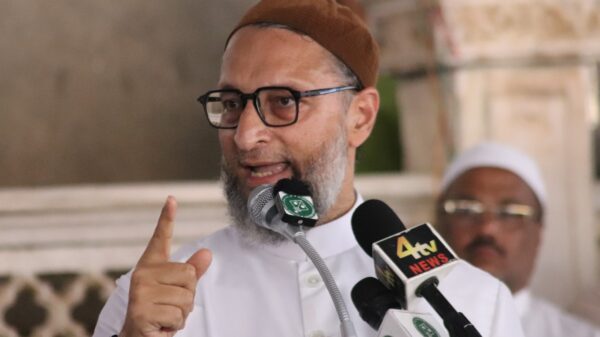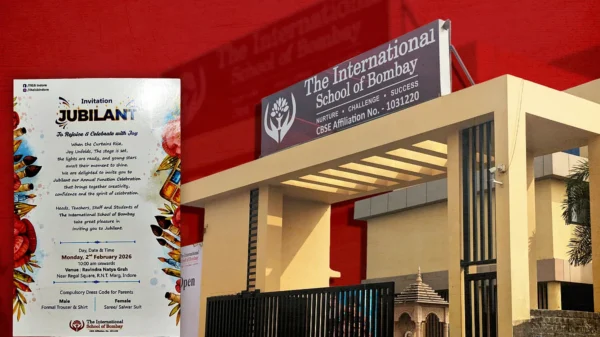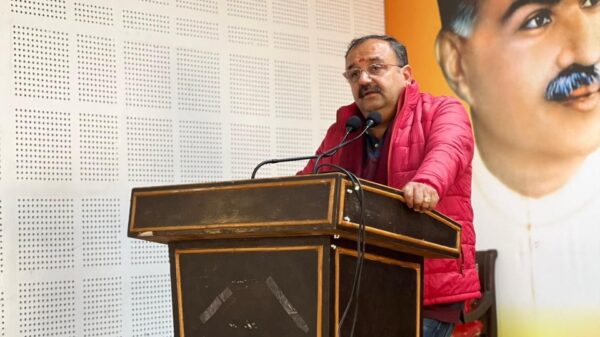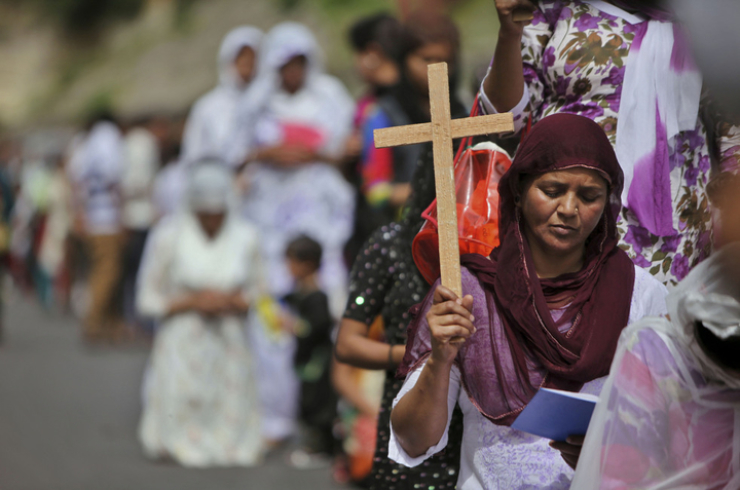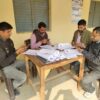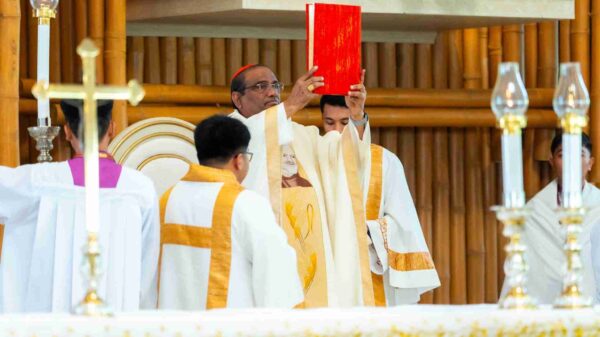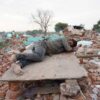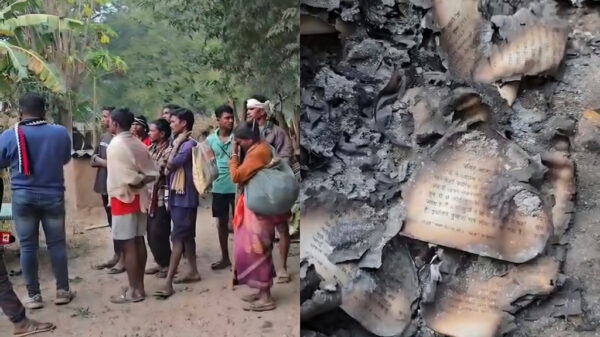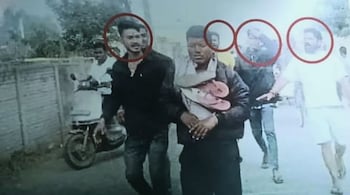The United Christian Forum (UCF) based in Delhi revealed a significant number of over 150 incidents of attacks on Indian Christians in just 2.5 months since the beginning of 2024.
The human rights organization that advocates for the Chrisitians, UCF, in its press release said that there is “a large-scale erosion of basic fundamental rights and protection of Indian Christians”.
As it lists Chattisgarh to have recorded the highest number of violence, followed by Uttar Pradesh, UCF stated, “In all, there are 19 states in India wherein Christians are facing threat to their lives for practicing their faith”.
“January witnessed 70 incidents of violence against Christians followed by 62 incidents in 29 days of February and 29 incidents in 15 days of March, 2024,” it said, making up a total of 161 incidents.
A previous statistical report of 2023 by UCF had alleged that the numbers are likely to set a new record compared to those of the previous years, to stand on par with the familiar vigilante violence against the Muslim and Dalit minorities.
Most instances of violence are carried out through mob actions orchestrated by “vigilante groups” of a specific faith, purportedly receiving support from individuals in positions of power, the report had alleged. And now, the recent release also claimed that there is “clear evidence of state- sponsored harassment of Christians”.
Many reports of hundreds of churches being vandalized and deaths as a result of violence have been attributed in large part to the Manipur violence. The Archbishop of Imphal, in a letter, written in June 2023, claimed that 249 churches belonging to Meitei Christians were destroyed in just 36 hours since the eruption of violence in May, 2023. A petition filed in the Supreme Court notes the number of structures of worship destroyed as 642. However, it must be pointed out that the UCF data did not include Manipur violence incidents against Christians, in spite of the claims that ‘religious attacks have been effectively carried out in the region’.
Government’s Role
Despite the constant efforts to shed light on the incidents that often go unnoticed by the authorities, very little has been done to take care of it, by those in positions of power. While PM Modi makes publicity trips to meet-up and “express solidarity” with Christians of other countries, Christians in India continue to try and bring the attention of the center to the aforementioned matter.
The concerned people can be seen visiting, submitting memorandums, writing pleas & petitions to the authorities in an effort to grab their attention. Last year on April 13, a Christian delegation met with President Droupadi Murmu and submitted a memorandum regarding the rising incidents of violent attacks on Christians.
On April 21, a member of the same delegation, Michael, wrote to Prime Minister Narendra Modi regarding the same, after the PM’s visit to Delhi’s Sacred Heart Cathedral on Easter, “expressing solidarity”. Michael believes that visits like the ones Modi has made to churches do little to help the community, since impunity for those perpetrating violence continues.
All these efforts, but to no avail, except just meetings, discussions, memorandums, etc. Apart from that, no action is taken by the government to stop it, while it is known to all that PM’s mere words, speaking up for the victims could have made little difference if not cease the attacks.
However, his silence has left the matter to worsen. Although the submitted letter was passed to the National Commission for Minorities who set a meeting in September, nothing had changed.
In December last year, (Christmas prayers were disrupted by Hindutva members alleging “religious conversions” in two different places of Uttar Pradesh. Celebrating religious festivals attracts the chances of attacks making the place of worship — churches or houses — vulnerable to violence.
The incidents happened while the PM hosted a Christmas Day event at his residence, underscoring his government’s commitment to fostering inclusive development. “Jesus lived the values of compassion and service. He worked towards creating a society where there is justice for all and for an inclusive society. These values serve as a guiding light in our journey of national development,” he said, in his address.
Dramatic Increase in Reported Incidents of Violence on Christians
The Evangelical Fellowship of India (EFI), an organization founded in 1951, has been recording data from across the country on various forms of attacks faced by Christian community.
Over the years it has noted that there was a sudden boom in 2016 when the number increased from 179-246. A substantial rise was again recorded the very next year, increasing the number by almost a hundred. Yet another significant jump was seen in 2021 to 505, from 327 in 2020, which then reached 599 in 2022. But this record was again when 2023 witnessed the highest number of incidents.
In its Religious Liberty Commission annual report of 2023, a disturbing rise to a staggering 601 incidents of anti-Christian violence was recorded. Nonetheless, with no end in sight to the persisting violence, “would 2023 break the record?” becomes a question of concern.
And the attacks still continue to rise as can be seen in recent incidents of 2024 alone. Some of the incidents that managed to make it to the headlines include, urinating on church gate, attack on Christian Missionary School In Madhya Pradesh’s Betul, attack on church in Telangana injuring about 20 Dalit Christians, among others.
Although the Christians make up about 2.3% of India’s total population, as per the 2011 census, the National Crime Records Bureau (NCRB) does not collect a separate category of data on attacks against them.
Moreover, the NCRB data has also claimed that the situation in India is the most peaceful in 50 years as riots have declined steadily between 1970 and 2021.
Here is a graph that showed a steady decline in riot-related complaints, throughout the time the first BJP-led National Democratic Alliance government was in power. Notably, the data analysis of riot cases comes at a time when the BJP-led central government is under strong criticism for spreading communal hatred.
International outcry
In December last year, a far-right saint identified as Swami Sachchidanand Maharaj, was seen spewing hate speech against Islam and Christianity, calling them “top enemies of Hinduism”. It is axiomatic that the rise in Hindu nationalism and different forms of violence against minorities by both state and others who take law in their hands, has unequivocally contributed to a soon-to-be normalized situation of vulnerability for the minorities.
In fact, the statements and implications of the authorities themselves against the minorities has often worsened the situation for them. While speaking to The Wire, Meenakshi Ganguly, deputy director of Human Rights Watch’s Asia Division, had said that, “There has been a rise in communal tensions in India, fueled by hate speeches from political leaders endorsing a predominant Hindu ideology, which in turn incites violence”.
A Washington-based research group, in its report titled ‘India Hate Lab’, documented 668 instances of hate speech events targeting India’s religious minorities, majority of which were orchestrated by the Rashtriya Swayam Sevak (includes BJP, VHP, Bajrangal,etc).
“Although Hindus have the right to freely practice their faith, it should not allow them to undermine and attack fellow Indians who adhere to different religions or beliefs. Unfortunately, certain Hindu groups, seemingly supported by the ruling BJP, have specifically targeted Muslims & Christians, and their places of worship and livelihoods,” Ganguly added.
Most of the cases recorded above have been missed out by the news headlines itself, let alone reach the deaf ears of the authorities. While concerned organizations keep documenting, the everyday brutality and violence continues in the form of attacks on churches or prayer gatherings, false allegations, especially those pertaining to ‘forced conversions’, harassment of those following their faith, exclusion and limiting access to community resources, discrimination and abuse in different forms.
This takes us to the very normalized allegations against the community that is often used as a pretext for attacks. The EFI presents a few occurrences faced by the community, one being attacked over claims of “forced conversions” by the right-wing groups like the Bajrang Dal, and noticeably not by any individual per se.
“The false narrative of forced conversions is being repeatedly exploited to justify horrific crimes of violence, intimidation, and harassment against the peaceful Christian community,” says Rev. Vijayesh Lal, General Secretary of EFI.
The state orchestrated ‘anti-conversion laws’, is one of the many other factors misused to cast the minorities to violence. This law not only contradicts the fundamental rights provided in the Indian constitution but also violates the international covenants and instruments in — Articles 1, 18, &19 in the Universal Declaration of Human Rights (UDHR), Articles 18 & 19 in the International Covenants on Civil and Political Rights (ICCPR), and Articles 2 & 3 in the UN Declaration on the Elimination of All Forms of Intolerance and of Discrimination Based on Religion or Belief.
The United States Commission on International Religious Freedom (USCIRF) that has noted this vulnerable state of the religious minorities in India and in its annual report of 2023, recommended the United States to designate India as a “country of particular concern,” (CPC), citing all reasons to do so.
In its key findings, it highlights the “enforced religiously discriminatory policies (Eg: NRC-CAA), including laws targeting religious conversion (i.e anti-conversion law), interfaith relationships (“Love Jihad”), the wearing of hijabs, and cow slaughter, which negatively impact Muslims, Christians, Sikhs, Dalits, and Adivasis (indigenous peoples and scheduled tribes).”
USCIRF believes India must be designated as CPC, “for engaging in systematic, ongoing, and egregious violations of religious freedom, as defined by the International Religious Freedom Act (IRFA)”.
As the country braces itself for the upcoming general elections, organizations request authorities to tackle the alarming matter. UCF requested the “leadership to put an end to this violence by taking strict action against perpetrators of all such crimes, and we hope and pray for a peaceful and fair election”.
Meanwhile, EFI stated in a press release issued on Thursday, “As we approach general elections in 2024, it is imperative that the Indian government and relevant state administrations uphold the rule of law and ensure the safety and security of all religious minorities”.







